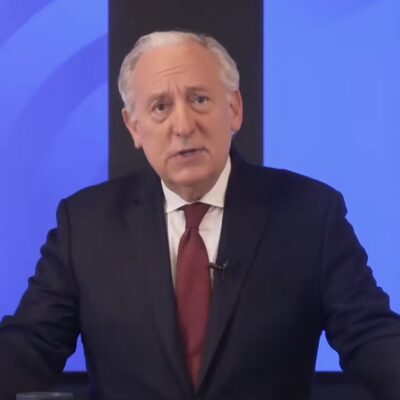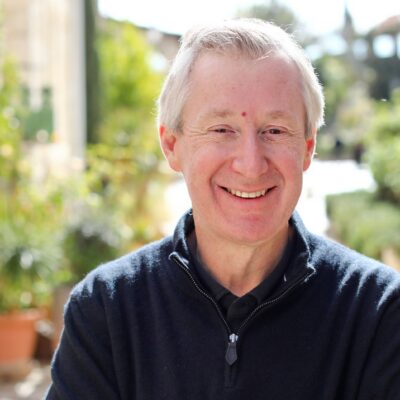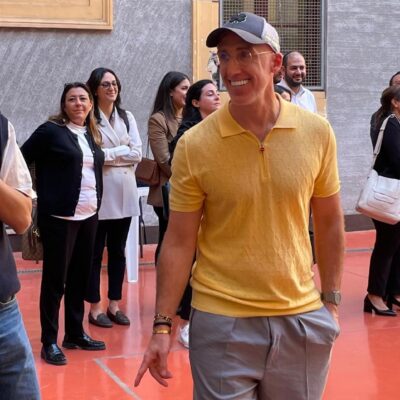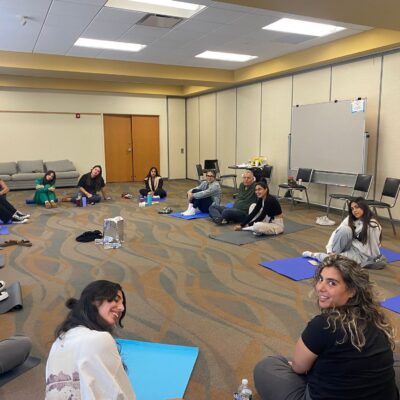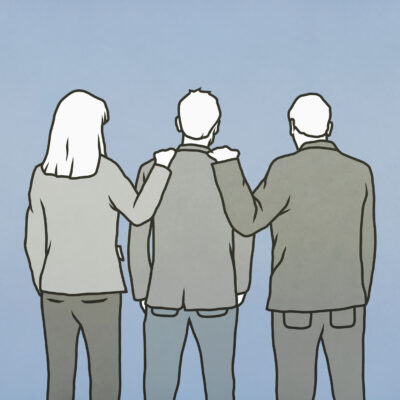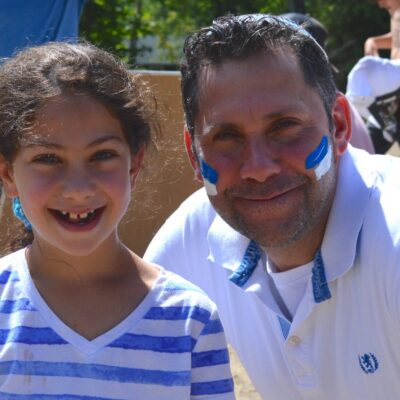The Mitzvah of Cancelling

By Rabbi Ilana G. Baden and Alison Siegel Lewin
It all started, as most things do nowadays, with an email. On Friday February 28, we notified the congregation of a new greeting, the “elbow bump,” in a message titled “Share Prayers, Not Germs.” Next came an update with information from the Centers for Disease Control on simple steps to stay healthy. The next Shabbat brought two emails: first, a reminder about illness prevention during Shabbat and then a notice to our congregants cancelling Torah Study because, after a possible exposure at the AIPAC conference, our Senior Rabbi would be self-isolating. Shortly thereafter it was a policy update regarding food and beverage service and ultimately, on Thursday March 12, we issued a heart-breaking directive: Don’t Come to Temple.
So how did we get here? In just a few short weeks, we will celebrate the holiday of Passover. The trials and tribulations of Israel, Moses, Aaron, and Miriam will be widely shared. There is one person, however, whose story often goes untold. That is Nachshon. According to the midrash (the rabbinic story), Moses raises his hands in an effort to make the sea part so that the Israelites could outrun the Egyptians who were pursuing them – yet the waters do not immediately separate. The people start to panic. Yet, Nachshon ben Abinadav has faith. He believes that if God said the waters would part, then surely they would do just that. Even though the sea rages, he steps into it. Once he does this, the waters recede and clear a path of dry land so that he and the rest of the Israelites may make their way safely to the shores of freedom. Nachshon finds himself in an interesting place. Together with his community, he stands in between a known threat – Pharoah’s army – and the unknown consequences of a dramatic change of course. Someone has to take the first step, and Nachshon does just that.
Recently, our Temple Chai leadership found ourselves in Nachshon’s shoes. With news that the Coronavirus had reached our community and having learned much in a short time from experts in public health, we found ourselves standing between a known threat and unknown consequences. If we remained open, it was a matter of time until COVID-19 made its way into our facility and spread amongst our members. But what would happen if we stepped into the sea? Never in any of our lifetimes had we seen a religious congregation – who gathers people together as a core tenet of its mission – shut its doors to its members. What would happen if we shut our doors? What would happen if we told our members to stay home? And so on Thursday March 12 a leadership team convened, consisting of the Executive Committee of the Board of Trustees, our entire clergy and senior staff, and our Facilities and Security Committee Chair. We shared information. We spoke with experts. We weighed our options. Ultimately, we chose to act. In a dramatic change of course, we chose to close our doors and suspend ALL in-person congregational activities until at least the end of March, in order to do our part to mitigate the spread of this novel virus. Just like that, we became Temple Chai Virtual.
In Judaism, we understand that the mitzvah of Pikuach Nefesh – of preserving life – takes precedence of virtually all other sacred obligations. In addition, we take to heart the idea that saving just one life is tantamount to saving an entire universe. As we learn about the rapid and exponential spread of COVID-19, this teaching takes on a new and urgent meaning. We realized that many of our dedicated and loyal (and often, yes, over 65) congregants found it emotionally difficult to miss out on the programs and services we offer in person. The only way to truly ensure they would not be part of a crowd was for us to simply cancel these activities until it is once again safe for us all to be together in the same physical space.
What does it look like to suspend in-person congregational activities? This will vary for every congregation and community, but this is what it looks like for us:
- Open Congregation: The Temple Chai clergy and professional staff remain available to serve our members and community in these uncertain times. We have launched a Remote Engagement Task Force that is working overtime, often into the wee hours of the morning, developing new opportunities for our members to connect to one another and to Temple Chai. In just a few short days, hundreds of our members of all ages have joined us in virtual prayer, participated in digital education, and come together to support each other in this uncertain time. The coming days will bring opportunities to meditate and reflect, to appreciate live music, to continue ongoing learning, to learn new skills, to pray, and most importantly to interact with and support one another. We may even have some fun and some laughs along the way.
- Closed Facility: Our building is closed to all congregant activity. Our maintenance staff is performing a deep clean of the facility and will tackle building projects that they may not have otherwise had an opportunity to do until summer.
- Embracing Technology: We had already begun experimenting with virtual adult education programs. Overnight, we became a completely virtual staff team. Tools like Zoom, Microsoft Teams, Facebook Life, and more are our new best friends. Every day we are learning more about how to leverage each platform for the benefit of our congregation.
- Supportive Members: The biggest question mark was the reaction of our members to what was, at the time, a more drastic change than other organizations were making. No one could predict the response from our congregants, which has been overwhelmingly appreciative. Messages of gratitude, support, and understanding have poured in not only from congregants here in town, but others who are spending the winter in warmer climates and even some who have long since moved away.
- Understanding Families: This decision may have hit no one harder than those in our community anticipating the rituals of the Jewish life cycle. Difficult conversations are taking place between our clergy and families both in mourning and looking towards upcoming celebrations. We are working with our congregants to come up with creative, adaptive, and meaningful alternatives for Jewish life observance. Thankfully, all the families have understood and appreciate these efforts. In our community, people recognize the need to be flexible during this critical time.
Of course, any initiative this large takes a village. None of this would be possible without the talents, expertise, commitment, and flexibility of our clergy, professional staff, lay leadership, and countless volunteers. From the bottom of our hearts we thank them for sharing new ideas, learning new skills, and stepping up to a (hopefully short-term) future of uncertainties—just like Nachshon. It is an honor to serve beside them.
Rabbi Ilana G. Baden is the Senior Rabbi at Temple Chai, a Reform Congregation in Long Grove, IL. Alison Siegel Lewin is the Executive Director of the synagogue.
Temple Chai is a member of the Union for Reform Judaism (URJ). The views and opinions expressed in this article are exclusively those of Temple Chai Clergy and Executive Staff and while not an official statement or implementation of UJR policy or recommendations are consistent with discussion and resources provided by URJ at https://urj.org/blog/2020/03/13/how-reform-congregations-are-coping-covid-19-and-tools-help..

 Add EJP on Google
Add EJP on Google